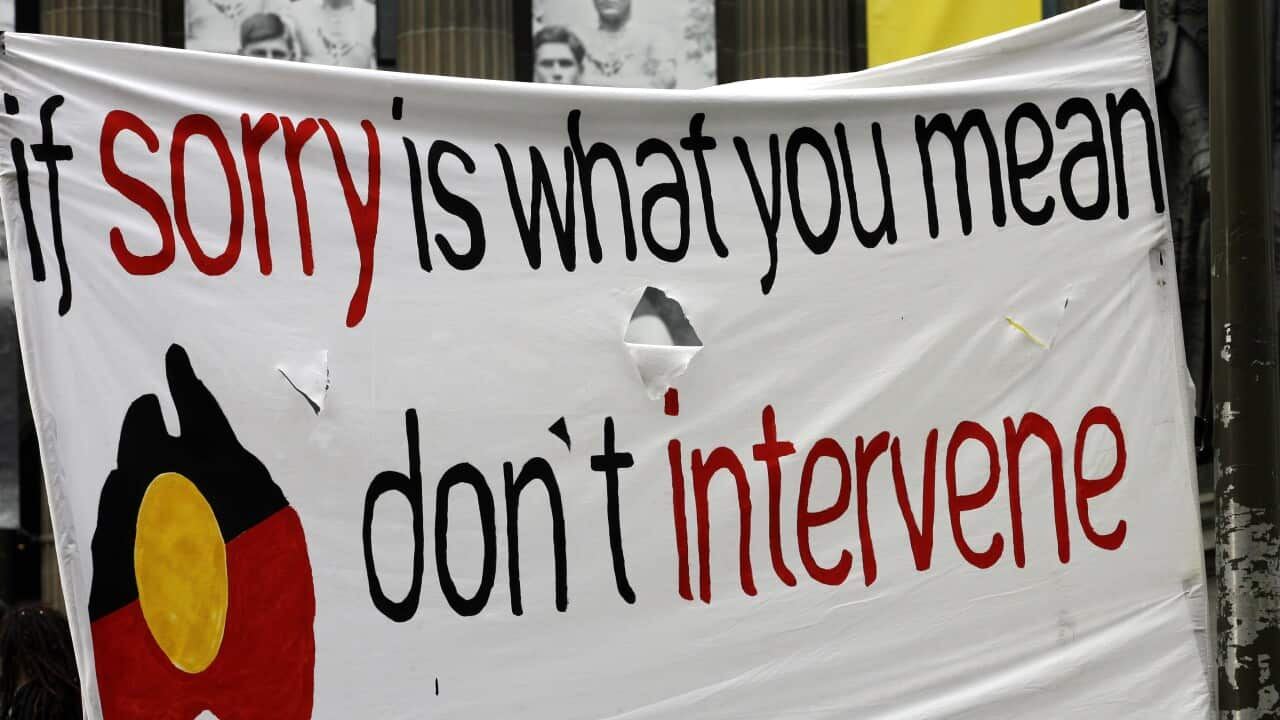Federal government legislation banning alcohol in remote Aboriginal communities expired at midnight on Saturday, meaning liquor will be legal for the first time in 15 years in some places.
Jaru woman and Top End health worker Marianne Skeen welcomed the change. She told SBS News it was time the government let Indigenous people decide how to live their lives.
“I always advocate they should stop doing these interventions, stop doing stuff for us and let us be self-sufficient and run our own lives. Basically, I’m sick and tired of the government stepping in,” she said.

Health Worker Marianne Skeen was living in Palmerston when the NT Intervention began.
The Association of Alcohol and other Drug Agencies NT said the government has not done enough to consult with community on the changes.
"Little to no preparatory work has been done to help communities to develop effective alcohol management strategies or to provide additional resources to respond to this change," executive officer Peter Burnheim said.
The Northern Territory government said any person or entity that wishes to sell alcohol in a remote community must apply to the Northern Territory Liquor Commission for a licence.
"This is a robust statutory process governed by the Liquor Act 2019 requiring strict criteria to be met, and is subject to any condition placed on it by the Liquor Commission," a spokesman told AAP in May.
What was the Northern Territory Intervention?
Marrianne Skeen was living in Palmerston, south of Darwin, when former Prime Minister John Howard sent police and army personnel into remote Indigenous communities in 2007.
At the time the government said it was responding to violence and the alleged sexual assault of children.
The alcohol ban introduced was continued by the Julia Gillard government in 2012 with the Stronger Futures Act.
“Everyone was painted with the same brush, they called all our men paedophiles, which wasn’t true,” Ms Skeen said.
Author and Indigenous Rights advocate Thomas Mayor said the blanket policy had been a failure and led to high rates of Black incarceration.
"One of the effects was that people just moved out of community to access alcohol (and were) on the roads putting themselves and others in danger," he said.
"It just created more opportunities for Indigenous people to be incarcerated ... and basically was in ignorance to the real causes of alcohol problems in communities."
Marianne Skeen said there are pros and cons to alcohol bans. The health worker sees the detrimental effect of alcohol on her people every day at work.

First Nations activists have protesting against "racist" Intervention-era legislation for years. Source: AAP / LARINE STATHAM/AAPIMAGE
“You can break the cycle if you try hard enough, but I don’t think there was enough funding to do that, for the services,” she said.
“That’s a good step to let the community decide (on alcohol bans) and if you have a good committee of people in the community, they will be able to monitor people, who is drinking. You can’t keep treating us like kids.”
Alcohol bans end but income management continues
When the Intervention swept through the Northern Territory, some First Nations people receiving welfare payments were also placed on the cashless debit card. This restricted what their money could be spent on, including alcohol or gambling products, but also made the purchase of second-hand items via cash very difficult.
, but has not given set a time frame.
Arrente man and legal director of the Human Rights Law Centre Nick Espie said the controls were paternalistic and pushed many families further into poverty.
“During these 15 years we have seen the demonising of Aboriginal people and culture and the erosion of self-determination,” he said.
“The Albanese government has promised to abolish the Cashless Debit Card Scheme and all forms of compulsory income management, which still live on in other legislation. Prime Minister must keep this promise.
“Aboriginal people should be front and centre of all decision-making that affects our lives and communities.”










